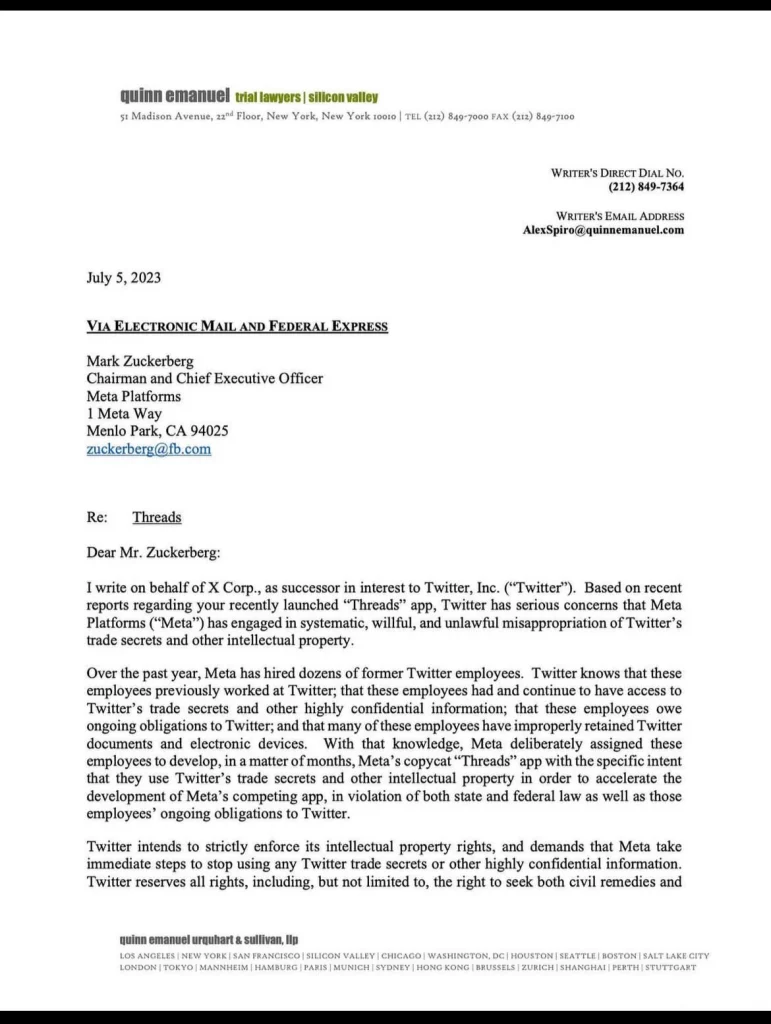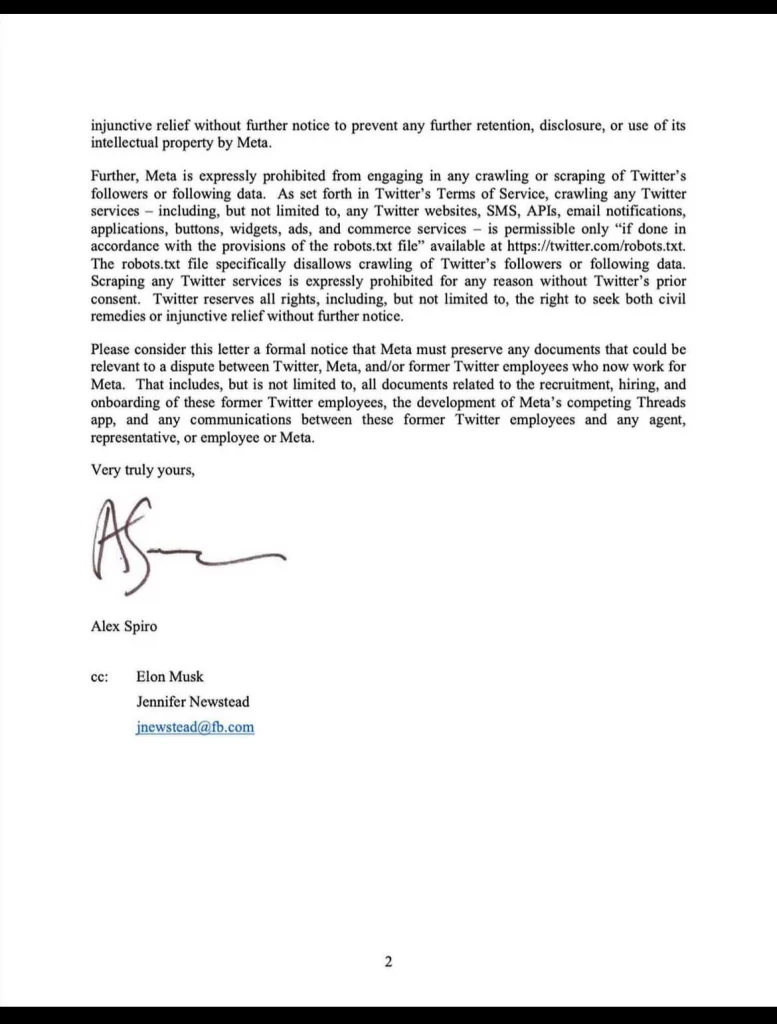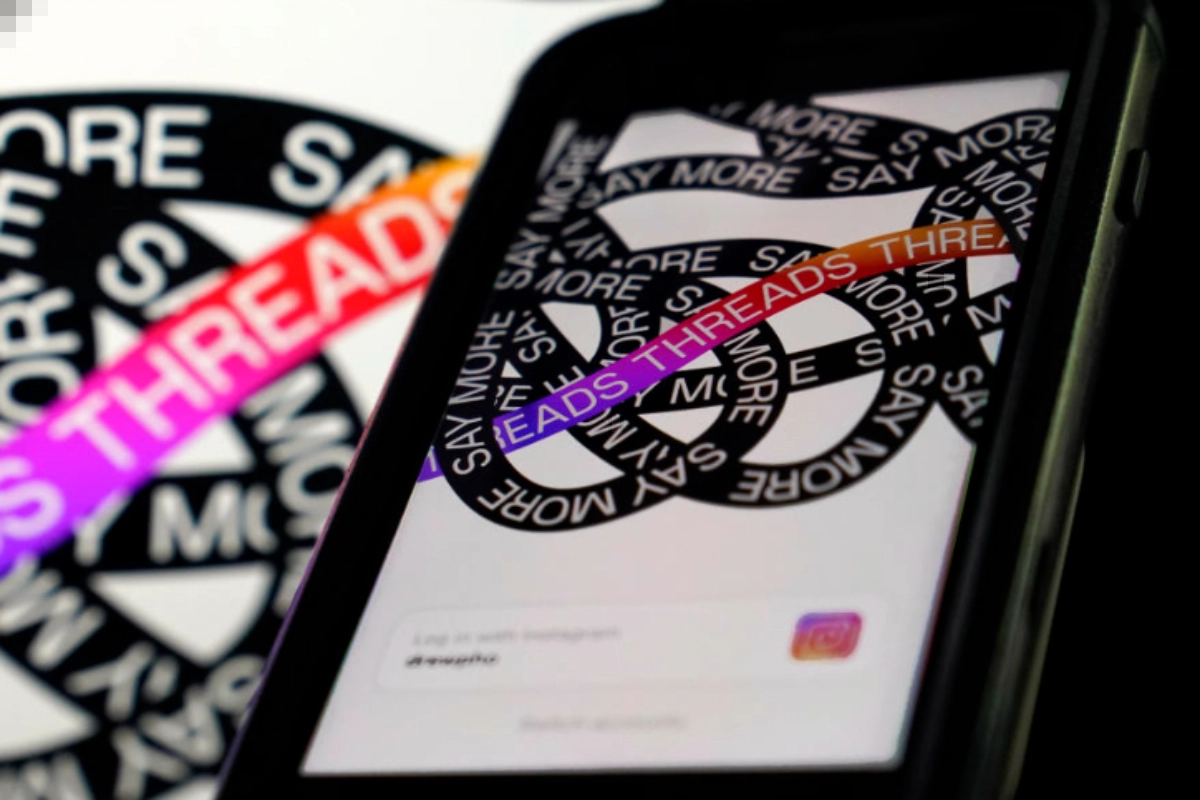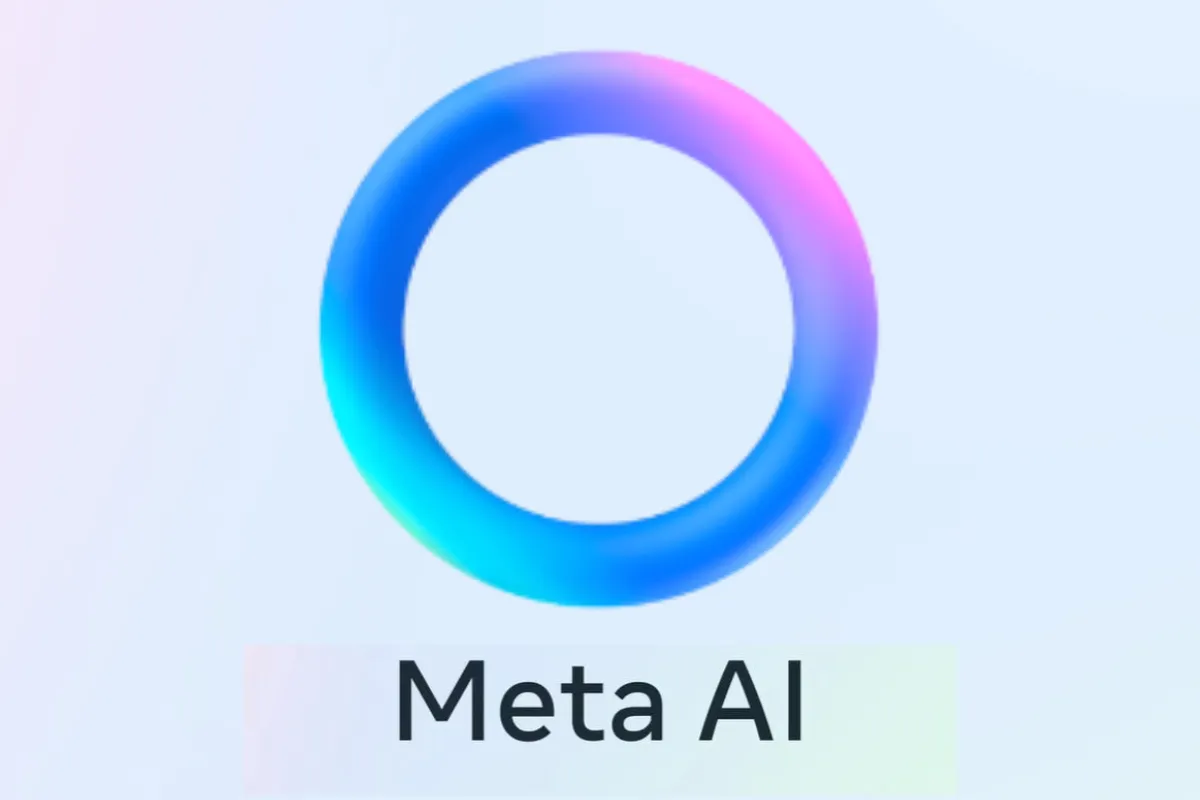Threads App: In a letter to Facebook CEO Mark Zuckerberg, Twitter’s attorney Alex Spiro threatened to sue Meta Platforms (META.O) over its new Threads platform. By utilising the billions of Instagram users, Meta, which began Threads on Wednesday and has received more than 30 million sign-ups, hopes to compete with Elon Musk’s Twitter. Spiro charged Meta in his letter of recruiting former Twitter workers who “had and continue to have access to Twitter’s trade secrets and other highly confidential information,” according to the news website Semafor.

Demands Meta Cease Use of Trade Secrets and Confidential Information
Spiro wrote in the letter that, “Twitter intends to strictly enforce its intellectual property rights, and demands that Meta take immediate steps to stop using any Twitter trade secrets or other highly confidential information.” On Thursday, the contents of the letter were confirmed by a Reuters source with knowledge of it. A request for comment from Reuters was unanswered by Spiro. Meta spokesperson Andy Stone posted on Threads “No one on the Threads engineering team is a former Twitter employee — that’s just not a thing.”
Former Twitter Employee Speaks Out

According to a former senior Twitter employee who spoke to Reuters, neither senior staff members who joined Meta nor any former employees working on Threads are known. Musk, the owner of Twitter, responded to a tweet noting the news by saying, “Competition is fine, cheating is not.” Facebook and Instagram are both owned by Meta. Mastodon and Bluesky, among others, have competed with Twitter since Musk took control of the social media platform in October. However, the user interface of Threads is similar to the microblogging service. However, neither keyword searches nor direct messaging are supported by Threads.
Trade Secret Claim by Twitter against Meta Faces Uphill Battle
According to intellectual property law experts like Stanford law professor Mark Lemley, Twitter would require substantially more information than what is provided in the letter in order to successfully prosecute a claim against Meta for trade secret theft. “The mere hiring of former Twitter employees (who Twitter itself laid off or drove away) and the fact that Facebook created a site that is somewhat similar is unlikely to support a trade secrets claim,” he said. According to Jeanne Fromer, a professor at New York University, businesses alleging trade secret theft must demonstrate that they took reasonable steps to safeguard their proprietary information. Secure mechanisms that were somehow thwarted are a common theme in cases. The most recent test for Twitter comes after a string of erratic choices that have alienated both users and advertisers, including Musk’s most recent decision to restrict the number of tweets that users may read each day.
Keep watching our YouTube Channel ‘DNP INDIA’. Also, please subscribe and follow us on FACEBOOK, INSTAGRAM, and TWITTER












